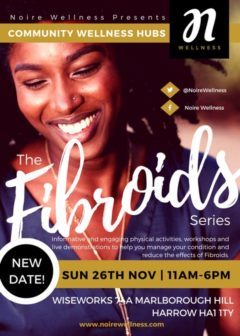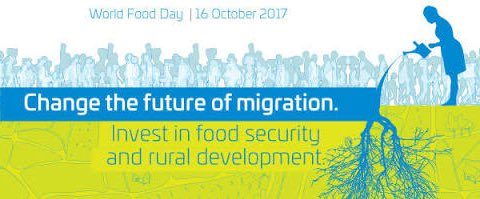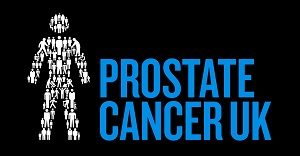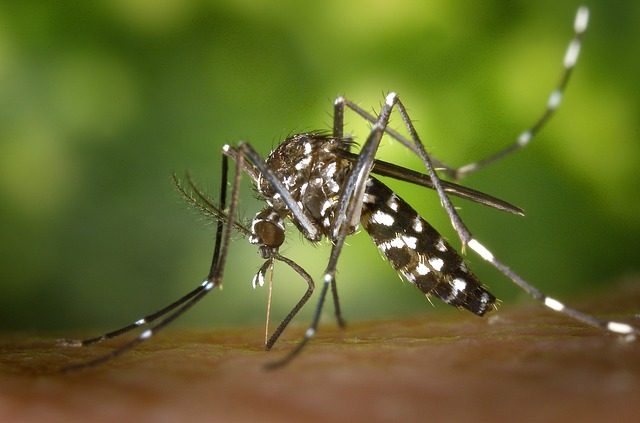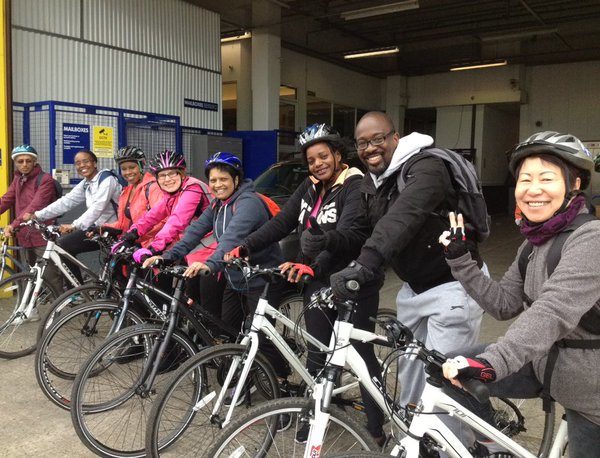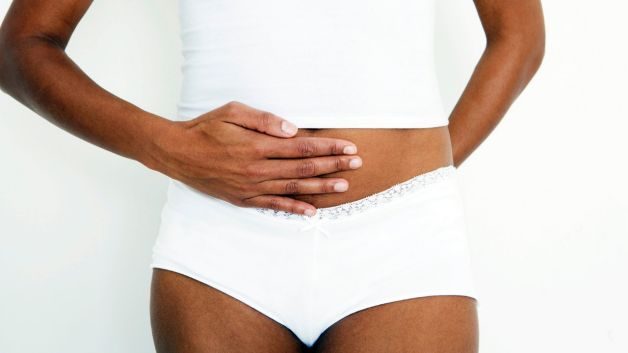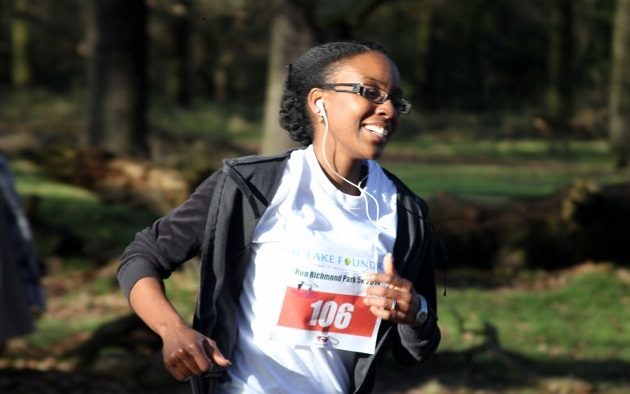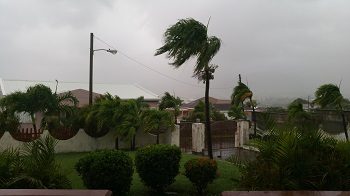The Lake Foundation aims to improve the health and well-being of the black community and to achieve this general aim a core part of our work is to get the black community more active.
Exercise can be very intimidating for many people and thus we sought to explore various options on how we could get people active in a way that could be incorporated into everyday life and would ultimately be fun.
Cycling is an interesting option as it is very practical and can be introduced into a person’s life as a method of transport (commuting to work), as a leisure activity (exploring the local area) and as a form of structured exercise.
We began our work by teaming up with the Cycling Instructor in 2014 to run a short-term initiative of bike-ability sessions aimed at the black community to teach basic cycling techniques and improve confidence. We worked with the Cycling Instructor for two summers and this proved very popular with us having to extend the sessions beyond their initial four-week period. With this in mind, we decided to build on the popularity of these sessions and we ran a cycling club, with funding from Sport England, from February 2016 to April 2017.
The need for our project
5.3% of the UK’s black population has type two diabetes (versus 1.7% of the white population), 33% suffer from high blood pressure, (compared to 16% of white adults), black African women have been found to have the highest prevalence of obesity, the black community is twice as likely to suffer from a stroke, is twice as likely to develop prostate cancer, is 2-3 times more likely to develop fibroids and as a result of their increased risk of diabetes are at increased risk of developing heart disease. One of the key lifestyle factors that tie these conditions together is physical activity.
Research has shown that the risk of developing these conditions can be reduced significantly by being more physically active, but unfortunately, studies have shown that over half of people from black and minority ethnic (BME) groups do not take part in sports nor do they do any physical activity.
By increasing the number of BME people taking part in a sporting activity we can begin to address some of the health challenges that plague the black community, but we need to create better opportunities for the black community to take part in sports. To successfully achieve this we need to present the community with fun, engaging, practical and easily accessible sporting activities; cycling can do this.
According to TFL “BME groups, women, people from more deprived neighbourhoods, those with disabilities and older people are typically under-represented in cycling” and “the typical London cyclist is white, under 40 and male with a medium to high household income”. This means that there is a huge inequality in cycling but this creates a huge opportunity to introduce BME communities to cycling.
Through the bike-ability courses, we were able to show that if cycling is presented to members of the BME community without any barriers (bikes and helmets provided) they will happily take up this activity and easily meet the government’s recommended amount of physical activity.
To ensure that our BME community kept cycling beyond the short bike-ability sessions we needed a sustainable long-term opportunity for them to cycle and our cycling club provided this.
Overview of the Cycling Club Project
Aims and Objectives
The aims of our cycling club project were to:
- Increase the number of people from a BME background who cycle regularly
- Improve attendees’ confidence in cycling
- Provide opportunities for members to develop in cycling
- Introduce the BME community to a fun and easy way to achieve the recommended amount of physical activity
We achieved the above by:
- Running two-hour cycling sessions every 2nd and 4th Saturday of the month
- Providing direction from experienced instructors and encouraging members to take part in national and local cycling events
- Making each session engaging and encouraging members to develop good friendships within the group. Each cycling session involved fun routes that allowed members to discover the beauty of their local area but also challenged members. We had socials to encourage relationships to be built that centred around cycling
- Ensuring that each session was definitely two hours so that members participated in a significant amount of physical activity.
Outcomes
Our project progressed well, the targeted number of participants for our project was 18 and we had 23 participants join our club over the 14-month period.
Outcome 1: Improved confidence in cycling
We hired trained experienced instructors from the organisation Cycling Instructor to lead sessions and provide participants with training on cycling techniques. This included cycling in traffic, hand signals, making sure bikes are road-worthy, cycling off-road and on-road and cycling uphill. This meant that members were given a good foundation when it comes to proper cycling technique and this has helped improve their confidence. Members completed feedback forms and before joining the club 10% felt not confident at all, 30% felt a little confident, 20% felt confident and 20% felt very confident with cycling. A year after joining our club only 9% of members felt a little confident whilst 45% of members felt confident and 36% felt very confident, with one member saying:
“I’m not a regular cyclist but it [the club] gives me confidence, particularly, on the roads”
Outcome 2: Provided opportunities for members to develop in cycling
Having sessions with experienced instructors helped develop the cycling skills of our club members and we also challenged members through extended 4-hour rides to Chislehurst Caves and the Olympic Stadium, and also several uphill routes. Additionally, we encouraged members to take part in local and national cycling events such as the Croydon Interfaith Cycle Ride, the Crystal Palace Road to Rio Ride and others. One member of our group took part in the London to Brighton ride, which was the first time she had participated in such an event, she said:
“I barely could cycle very far but after a few months of cycling with the club I was able to cycle 20-23 miles” – Sam, Cycling Club Member
We asked members how much they feel their cycling technique has improved since joining the club and 45% said their technique had improved a lot, 36% said their technique improved somewhat, 9% said it improved a little and 9% said they didn’t know.
Outcome 3: Introduced the BME community to cycling
The majority of people that attended our cycling club were from a BME background – 20 out of 23 were from a BME background, some of whom didn’t cycle regularly before joining our group. Before joining the group 18% had never cycled, 18% cycled once or twice a year, 27% cycled monthly, 27% cycled weekly and 9% cycled more than 5 days in a week. Through our club we have introduced cycling to some (18%) and the club ensured that the others engaged more regularly in cycling.
Some keys to success
Our project worked well due to the excellent freelance cycling instructors we hired who were very experienced and made each session very enjoyable. They found interesting routes each time, and the sessions were informative with members learning about cycling techniques, so it was a good balance of fun, exercise and instruction.
Additionally, we recruited a cycling coordinator who was very warm, friendly and encouraging this provided a really good atmosphere at each session. She ensured everything ran smoothly, being the point of contact for members and instructors and she worked well with the instructors to plan each route. She also organised socials for members which were well-attended and this gave members the opportunity to get to know each other. Importantly our coordinator was a member of the BME community and a keen cyclist.
Conclusion
Similar to the short bike-ability courses we have been able to show that if cycling is presented to members of the BME community without any barriers (bikes and helmets provided) they will happily take up this activity and easily meet the government’s recommended amount of physical activity.
One important point to note is that the social aspect of the club was very important. We found that many club members didn’t cycle in-between sessions nor did they cycle when sessions were cancelled. When we probed further we found that members liked cycling as a group activity and valued the time spent with others. It would appear that our group of BME cyclists looked at cycling as more of a leisure activity rather than a method of transport or structured exercise. This suggests that to encourage more people from a BME background to cycle, projects that promote cycling for leisure rather than for commuting and exercise are more likely to appeal to the BME community; and these projects would need to be group activities that promote social interaction.
We are very grateful to Sport England for funding this project and Cycling Instructor for their advice and support.







